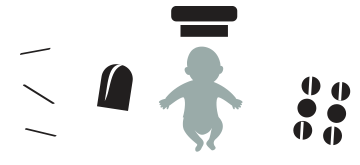Long-Acting Therapy Clinic Helps Patients
Integrative Medicine Offers Unique Wellness Model
Memorial’s Mothers In Recovery Program
Oxygen Therapy Speeds Wound Healing
Acupuncture Relieves Chemotherapy Side Effects
Pet Therapy: A Special Kind of Healing
Integrative Medicine Offers Unique Wellness Model
Integrative Medicine has enjoyed two years of innovation within Memorial Cancer Institute. The goal of our integrative health strategy is to make its unique wellness model available to every cancer patient.
Towards this end, Integrative Medicine has improved patient engagement at the onset of treatment with a multidisciplinary orientation program called The Next Step Program. Memorial also has developed the region’s first Integrative Survivorship Program to re-empower patients with nutritional recommendations, an exercise plan, therapeutic yoga, acupuncture and mindfulness after primary treatment for cancer.
In November 2016, Memorial’s Integrative Medicine team presented these advances during the Society for Integrative Oncology conference, where 32 countries were represented by more than 500 attendees. The success of this comprehensive clinical model is attributed to preventive referrals from forward-thinking providers throughout Memorial Cancer Institute.
Integrative Medicine at Memorial now looks to build a robust research infrastructure to measure outcomes, enhanced patient satisfaction and impact on utilization. The team is applying the proof of concept established at Memorial Cancer Institute to assist Memorial’s Neuroscience Institute and Memorial Rehabilitation Institute with evidence-based, non-pharmacologic management of multiple sclerosis, migraines, epilepsy and chronic pain. Integrative Medicine is well-poised to serve other clinical service lines at Memorial and help to surmount healthcare challenges on the horizon.
Long-Acting Therapy Clinic Helps Patients with Serious Behavioral Health Conditions
Memorial Regional Hospital’s Long-Acting Therapy (LAT) Clinic serves as a valuable community resource for people with serious behavioral health conditions such as schizophrenia, bipolar disorder and substance use disorder.
The clinic is filling a gap in treatment, providing access to long-acting injectable antipsychotics and reducing recidivism, according to Alberto Augsten, PharmD, Manager of the LAT Clinic.
“For a long time, we had patients who were admitted for inpatient crisis stabilization; they would get better and then get discharged on a stable dose of a long-acting injectable medication, only to be re-hospitalized within a short period of time – usually in 30 days or less,” Dr. Augsten said. “For the most part, it was because they were not able to access these medications at their provider’s office.”
The LAT Clinic makes a significant difference in improving the quality of life for our patients. It has proven effective in reducing readmissions as evidenced by a mere 4 percent of LAT patients requiring re-hospitalization, Dr. Augsten said.
Many patients who want to be on a long-acting medication don’t have a doctor’s office that can administer it, or they have problems with insurance approval, he explained. They also need to be monitored for a variety of side effects that can occur. Because medications remain in the system for two to four weeks, patients don’t have to remember to take their medicine daily.
The LAT Clinic provides comprehensive patient- and family-centered care, which includes monitoring for compliance and side effects and building a long-term therapeutic relationship with patients.
“The staff is engaging with patients on a personal level and building meaningful relationships with them and [their] families, which encourages ongoing compliance with appointments and medications,” said Jorge Luis Sotelo, MD, Medical Director of Adult Psychiatry Services at Memorial Regional Hospital.
In addition to providing antipsychotics, the LAT Clinic recently began to offer an FDA-approved injectable medication known as a long-acting naltrexone for individuals with opioid dependence. This comes at a crucial time during the growing opioid epidemic in Broward, South Florida and the nation.
“The LAT Clinic has the potential to grow significantly over the next 12 months,” Dr. Augsten said. “A lot of our patients need access to a clinic like ours.”
Memorial’s Mothers In Recovery Program
- Offers innovative drug treatment for moms-to-be
- With a multidisciplinary team to treat their addictions
- Plus community outreach, earlier screenings and immediate links to inpatient detox, all of which
- Help to eliminate Neonatal Abstinence Syndrome-related stays in the NICU
In two years, Memorial’s program:
Has treated 72 women for a total of 












 52 births.
52 births. 







 90.4% of them born drug-free
90.4% of them born drug-free 













 for a cost savings of $6.8 million
for a cost savings of $6.8 million
Babies born to women with drug addictions are among the hardest hit by South Florida’s opioid epidemic

- Born in withdrawal from drug exposure
- Require lengthy stays in the NICU for Neonatal Abstinence Syndrome (NAS)
- Which cost nearly $90 million every year
Addiction doesn’t discriminate – it affects people of all races and socioeconomic levels. Memorial’s Mothers In Recovery program is a one-of-a-kind initiative that provides compassionate, nonjudgmental treatment to help pregnant women get off drugs and keep their babies out of the NICU. If you know someone who is pregnant and struggling with addiction, this great program of Memorial’s can make a real difference in her and her child’s lives.”
Oxygen Therapy Speeds Wound Healing
At Memorial Center for Wound Healing, a hyperbaric oxygen chamber helps patients with slow-healing or non-healing wounds. Blane Shatkin, MD, the center’s Medical Director, explains how this process works.
Acupuncture Relieves Chemotherapy Side Effects
Veronica remembers always being tired and nauseated during her chemotherapy treatments while battling breast cancer. Her food tasted like aluminum. Medication that was meant to help caused pain instead. After just a few weekly acupuncture sessions with Memorial’s Integrative Medicine Program, she immediately felt relief.
Pet Therapy: A Special Kind of Healing
In each of Memorial’s hospitals, pet therapy dogs help create a healing environment that offers our patients more than conventional medicine. Meet Liz, Memorial Rehabilitation Institute’s golden retriever that has helped patients reach their goals since 2009.
© 2017 Memorial Healthcare System